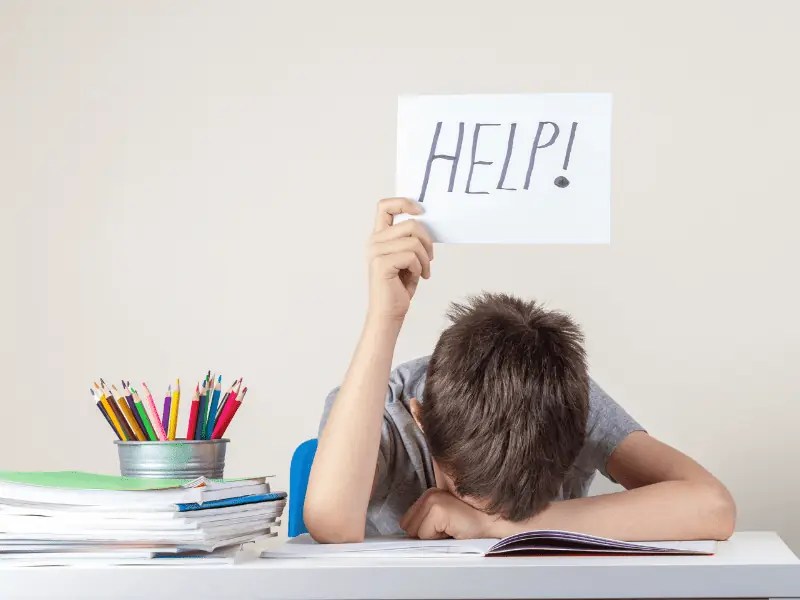
Unschooling is a form of homeschooling that emphasizes self-directed learning and allows children to follow their interests and passions.
This approach can be particularly beneficial for children with dyslexia, as it allows them to learn at their own pace and in a way that suits their unique needs.
In this blog post, we will explore the benefits of unschooling for children with dyslexia and provide examples of how it can be implemented in practice.
Table of Contents
What is Dyslexia?
Dyslexia is a learning difference that affects how the brain processes are written language. It is estimated to affect around 10% of the population, making it one of the most common learning differences.
Children with dyslexia may struggle with reading, writing, and spelling and may also have phonological awareness and decoding difficulties.
Benefits of Unschooling for Children with Dyslexia
Unschooling can be particularly beneficial for children with dyslexia for several reasons:
- Flexibility: Unschooling allows children to learn at their own pace and in a way that suits their unique needs. For example, a child with dyslexia may struggle with traditional reading instruction but excel at learning through hands-on activities or audiobooks.
- Self-directed learning: Children with dyslexia often have to work harder to learn than their peers, which can lead to feelings of frustration and failure. Unschooling allows children to take control of their learning and follow their interests and passions, which can help to build their confidence and self-esteem.
- Multi-sensory learning: Children with dyslexia often learn best through visual, auditory, and kinesthetic methods. Unschooling allows children to explore different learning styles and find what works best.
- Reduced stress: Unschooling eliminates the pressure of traditional testing, grades, and deadlines, which can be particularly beneficial for children with dyslexia who may struggle with these traditional education methods.
Examples of Unschooling for Children with Dyslexia
Lets look at a few examples of how unschooling can be implemented for children with dyslexia:
- Reading: A child with dyslexia may struggle with traditional reading instruction but may excel at learning through listening to audiobooks. An unschooling approach would allow the child to listen to audiobooks on a variety of subjects and at their own pace rather than forcing them to read a set text.
- Writing: A child with dyslexia may struggle with writing but excel at expressing themselves through art or music. An unschooling approach would allow the child to explore these outlets for self-expression and to learn about writing through these mediums.
- Math: A child with dyslexia may struggle with traditional instruction but excel at learning through hands-on activities. An unschooling approach would allow the child to explore math concepts through building and problem-solving rather than rote memorization.
How can unschooling benefit children with dyslexia?
Unschooling can benefit children with dyslexia because it allows them to learn at their own pace and in a way that suits their unique needs, such as through hands-on activities or audiobooks.
It also allows children to take control of their learning, which can help to build confidence and self-esteem.
Can unschooling be implemented for children with dyslexia?
Yes, unschooling can be implemented for children with dyslexia by allowing them to explore different learning styles and methods, such as audiobooks for reading, art or music for writing, and hands-on activities for math.
It is important to work with a qualified professional when implementing unschooling for children with dyslexia to ensure their unique needs are met.
Is unschooling only for children with dyslexia, or can it benefit other learning differences?
Unschooling can benefit not only children with dyslexia but also children with other learning differences, such as ADHD, Autism, and others.
The flexibility and self-directed nature of unschooling can help children with a variety of learning differences to learn at their own pace and in a way that suits their unique needs.
How can parents and educators support unschooling for children with dyslexia?
Parents and educators can support unschooling for children with dyslexia by providing resources and materials, facilitating connections to mentors and experts in the child’s area of interest, and fostering an environment supportive of self-directed learning.
Additionally, working with a qualified professional, such as a dyslexia specialist or educational therapist, can help ensure that the child’s unique needs are met.
Conclusion
In conclusion, unschooling can be a powerful tool for children with dyslexia and other learning differences, as it allows them to learn at their own pace and in a way that suits their unique needs.
It is essential to consult with a qualified professional when implementing unschooling to ensure that the child’s unique needs are being met.
With the right support and resources, unschooling can be a powerful way for children with dyslexia to reach their full potential.